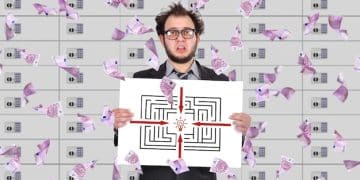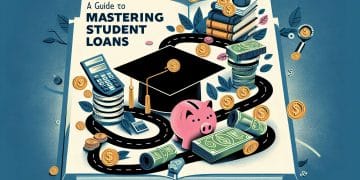Master Your Money: Key Budgeting Strategies for Financial Freedom


Personal budgeting is a vital skill in managing our modern financial landscape. With countless expenses vying for attention, staying financially afloat requires strategic planning and discipline. Whether aiming to pay off student loans, secure a down payment for a house, or simply avoid living paycheck to paycheck, mastering budgeting is key. A well-crafted budget not only aids in spending awareness but fortifies the pathway to achieving overarching financial aspirations.
Anúncios
Budgeting transcends the mere act of accounting; it’s about creating a financial roadmap. Such planning ensures resources are wisely allocated, aligning daily expenditures with long-term financial goals. From distinguishing between ‘needs’ and ‘wants’ to fostering a habit of regular savings, budgeting can radically transform how one perceives and handles money. Understanding how to distribute your resources effectively establishes a foundation for stability and growth.
No longer an abstract concept, budgeting has become increasingly accessible due to digital tools. Modern apps have turned traditional pen-and-paper budgeting into a streamlined digital experience. This evolution empowers individuals not just to anticipate monthly bills, but also to plan for unexpected costs. With advanced software at one’s fingertips, the dynamics of budgeting have shifted, making it easier for anyone to engage in proactive financial planning.
Creating an effective personal budget begins with a thorough inventory of your finances. Start by listing all income sources, ensuring a comprehensive view of your earnings. This includes primary income like salaries and side ventures which add to your financial pool. Such detailed insight is crucial for crafting a budget reflective of actual financial capabilities. Without it, any budget strategy remains inherently flawed.
Post income assessment, turn attention to expenditures. Categorize these into fixed elements like rent or mortgage, utilities, and recurring subscriptions. Variable expenses, such as dining out, shopping, and entertainment, also need tracking. Tools like apps or simple spreadsheets assist in maintaining financial vigilance, offering clarity on spending patterns that could otherwise slip through unnoticed.
Setting tangible financial goals acts as a guiding star for your budget. Decide the objectives you wish to achieve, whether debt elimination or nest egg creation for future ventures. These aspirations anchor your budgeting, providing motivation to adhere to the plan. A vivid, realistic goal fosters commitment and frames financial decisions within the context of these targets.
After goal setting, it’s time to construct a workable budget plan. Allocate your income across needs, wants, and savings, adhering to a formula like the 50/30/20 rule as a baseline. Tailor these allocations to match personal priorities and circumstances, ensuring the budget remains both applicable and aspirational. This plan forms the backbone of your financial strategy.
Budgeting is not static; it evolves. Regularly reviewing and adjusting your financial plan to match life’s changes is vital. As your income, expenses, and personal aspirations shift, so should your budget. Frequent reviews can preempt financial pitfalls, ensuring a budget remains time-relevant and effective in meeting life’s unpredictable nature.
Overview of Personal Budgeting
At its core, personal budgeting is about crafting a financial architecture that guides daily expenditure in a fulfilling yet responsible manner. By understanding where your financial resources stand, you’re better poised to make informed decisions that support both short-term happiness and long-term objectives. The ultimate goal is to embrace budgeting as a tool of empowerment, unlocking a path to financial liberation.
Understanding personal budgeting equips individuals with the tools needed to manage money effectively. It’s less about restriction and more about financial freedom. Budgeting helps track income versus outgoings, creating a balanced life where financial worries no longer impose constraints. It’s integral for anyone aspiring to achieve a confident and stress-free financial journey.
Another pivotal aspect of personal budgeting is avoiding common pitfalls. Money mismanagement often stems from underestimating expenses or failing to account for irregular costs. By preemptively identifying and setting aside funds for infrequent expenditures, such as car repairs or medical emergencies, financial resilience is optimized, preventing derailing smooth financial execution.
The impact of technology in the personal budgeting sphere cannot be overstated. With applications readily available, tasks such as tracking expenses and setting goals have become significantly simplified. These digital solutions provide features that instantly update changes and offer insights through analytical breakdowns of spending habits, amplifying efficiency and accuracy.
Characteristics and Key Points of Personal Budgeting
- Enhances awareness of spending habits, allowing for informed financial decisions.
- Provides a structured approach to achieving financial goals through consistent practice.
- Embraces technology for improved tracking and planning efficiency.
- Averts overspending by clearly delineating ‘needs’ from ‘wants’.
- Encourages regular savings as part of a sustainable financial lifestyle.
Benefits of Effective Personal Budgeting
Implementing effective personal budgeting can lead to significant financial wellness. It cultivates a habit of financial discipline, aiding individuals in living within their means while simultaneously saving for future endeavors. This disciplined approach mitigates the anxiety of unexpected expenses, fostering a sense of control over one’s financial realm.
Personal budgeting builds a shield against possible financial missteps. By maintaining a budget, there is a constant awareness of financial status, making it easier to adjust when economic conditions shift. This adaptability ensures continued protection against unforeseen financial challenges and maintains a steady course toward income growth and asset accumulation.
The empowerment that comes with personal budgeting transforms one’s financial outlook. By gaining control over expenditure and savings, individuals experience reduced financial stress. This mental reprieve allows a focus on personal growth and enriched life experiences, free from the shackles of monetary uncertainty or debt.
- Facilitates the creation of emergency funds.
- Prevents overspending, leading to healthier financial habits.
- Supports investment opportunities by allocating funds toward wealth-building activities.
- Improves decision-making with clear financial insights.
Through structured financial planning, budgeting curates a steadfast pathway to financial health and independence. It’s about discipline but also about rewards—balancing present enjoyment with future security. By adopting effective personal budgeting habits, individuals not only safeguard current finances but also pave the way to long-term prosperity and freedom.





